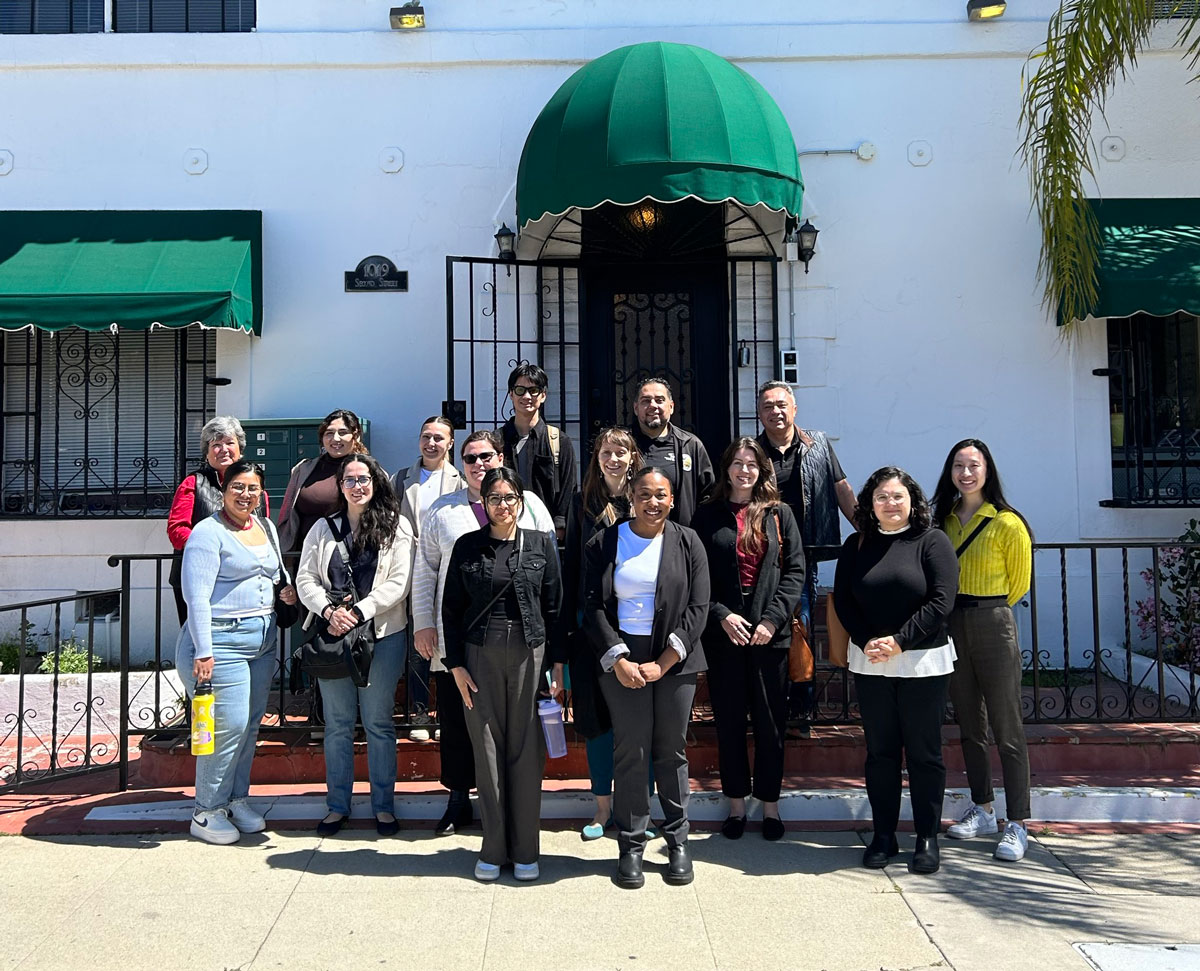RCC Year 1: Annual Report: 2030 Resilient Networks Collaborative

Overview
Award Amount: $799,999
Region: Los Angeles County
Communities of Focus: San Fernando, Simi, Santa Clarita, Antelope Valley, Pacoima
Partners:
The 2030 Resilient Networks Collaborative is excited at the opportunity to strengthen tribes’ capacity for climate resilience, by applying traditional ecological knowledge and history combined with new data and modern science, equipping them to compete for funding, and build essential resilient infrastructure.
About the Collaborative
The tribal-led 2030 Resilient Networks Collaborative intends to build the capacity of tribes and tribal-led organizations in partnership with environmental experts in the Los Angeles County region. The Collaborative has identified a need that intentionally and strategically supports tribes’ needs for self-sufficiency to successfully apply for grants and funding. The Collaborative will create a blueprint for tribes in California to expand their capacity to be “on par” with those of a large organization with experience in climate-related projects, and to become primary contenders for upcoming climate-resilience funding. The Collaborative aims to successfully apply and receive funding for a climate-resilience infrastructure project in the region, such as a Climate Resilience Hub.
Highlights in Year 1
In its first year, the 2030 Resilient Networks Collaborative kicked off their process to develop a blueprint to help tribes build capacity to advance tribal-led climate plans and projects. The collaborative partners started by circulating a Technical Assistance (TA) Assessment Survey among partner tribes and organizations in the region to collect specific TA priorities and needs. This survey will inform the formulation of a Technical Assistance Toolkit to benefit the entire region. The toolkit will enhance the capacity of tribes and other groups in the region seeking TA as well as provide a dialogue for these groups to learn from each other. The Collaborative will leverage the toolkit to access funding for the region and improve the health of tribal citizens and residents in tribal territories as well as the environment that they steward.
This year, the managing partner, the Fernandeño Tataviam Band of Mission Indians (FTBMI), released their Tribal Climate Resiliency Plan that serves “as a blueprint to address climate in tribal territory.” Through its work with the collaborative, FTBMI aims to use this plan to pursue funding opportunities to address climate impacts in the region such as extreme heat, wildfire mitigation, drought, flooding and energy resilience. This plan maps out vulnerable communities impacted by these climate challenges within the tribe’s Land Boundary to help deploy climate resilience strategies and opportunities.
The Collaborative is helping implement the plan by applying to a number of funding opportunities to advance their climate resilience work and capacity building. For example, 2030 Resilient Networks Collaborative partners secured a variety of federal and state funding opportunities, including the U.S. Department of Agriculture Urban Forestry Grant and the UCLA Climate Ambassadors program. The $5 million investment from the USDA Forestry Grant Program will support FTBMI leverage their traditional ecological knowledge and relationships with their communities to establish urban forests and develop workforce training programs.
They were also awarded a $500,000 California Strategic Growth Council Community Resilience Centers Planning Grant for their Pasekinga (Place of Shade) Resilience Center Network project in partnership with the City of San Fernando. As part of this grant, FTBMI and Climate Resolve will conduct data analysis and engage with the tribal community to strategize for a tribal-informed network of climate resiliency centers to act as emergency cooling shelters during extreme heat events. FTBMI and Climate Resolve have also been awarded an Adaptation Planning Grant in partnership with the City of San Fernando to create a Climate Action Plan focused on equity, extreme heat, and air pollution.
Additionally, the collaborative has continued to build relationships with federal, state, tribal, and local government leaders as well as other Regional Climate Collaboratives (RCC) Grantees. During this past year, the 2030 Collaborative connected with the Southeast Los Angeles (SELA) Collaborative (part of the Gateway Cities RCC) to explore possible opportunities to work together across the region.
Key Milestones:
- Secured a $500,000 SGC Community Resilience Centers Planning Grant for their Pasekinga (Place of Shade) Resilience Center Network project.
- Secured a $5 million grant in partnership from the U.S. Department of Agriculture Urban and Community Forestry Program to leverage traditional ecological knowledge to establish “urban forests”.
- Created an outreach database to engage with relevant external tribal partners and organizations that can be eligible to receive TA. This database was used to send surveys to these partners and organizations on technical assistance needs.
- Partnered with the City of San Fernando and secured a $600,000 Governor’s Office of Land Use and Climate Innovation Adaptation Planning Grant to create a Climate Action and Resilience Plan for the City of San Fernando.
What’s Next
In the coming year, the Collaborative partners are looking forward to creating their Tribal Technical Assistance Gap Analysis with the results of their Technical Assistance Assessment Survey and engagement with tribes and other partners. The Collaborative also plans to engage external community-based organizations and government agencies in this analysis to include relevant and additional technical assistance that is available to tribes in the region. The Collaborative will also support the implementation of FTBMI’s Tribal Climate Resiliency Plan and pursue funding opportunities to address the climate challenges carry out the adaptation and mitigation strategies outlined in the plan.